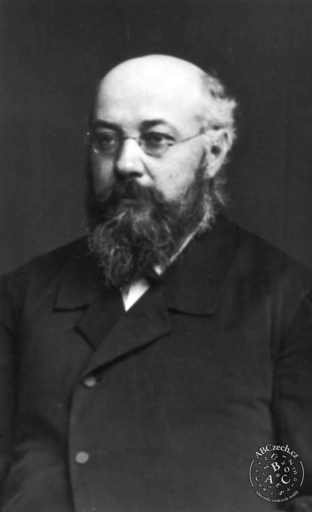
Writer and journalist, known especially as the author and founder of the specific literary genre called “romaneto”. In his works, he dealt primarily with social and political issues.

Writer, dramatist and journalist. His characteristic style was an ironic imitation of the things that his contemporaries took seriously.

Poet whose works represent the culmination of 19th-century Czech versified story and prose writer who created a satirical image of petty bourgeois. He belonged to the Ruch generation and was regarded by his admirers as the prince of Czech literary Parnassus.

Czech writer, poet, translator, collector of Czech folk songs and tales, notable representative of Czech literary Biedermeier, best known as the author of the book of poems A Bouquet of Folk Legends (Kytice z pověstí národních (1853).
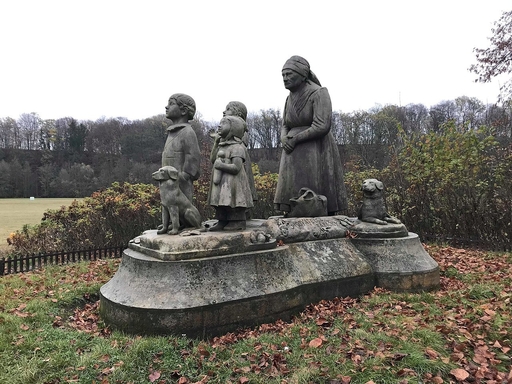
The valley where the plot of the novel The Grandmother (Babička) by Božena Němcová is set.

Poet, prose writer, dramatist, literary and theatre critic, feuilletonist and journalist. He is one of the leading representatives of the generation of the almanac Máj (May). His poetry was mostly about love and nature, while in prose he focused on social conflicts in the Czech countryside.

Writer, humourist and editor famous for his feuilletons, stories and novels set in Prague. Many of his works were adapted for screen, primarily because of their colourful description of the Prague atmosphere.

Lyrical poet and fine artist, one of the most leading figures of Czech Symbolism and Decadence associated with the magazine Moderní revue.

Czech poet and prose writer, representative of Czech romanticism and the founder of modern Czech poetry. He appears in textbooks primarily as the author of the lyrical epic poem May (Máj, 1836).
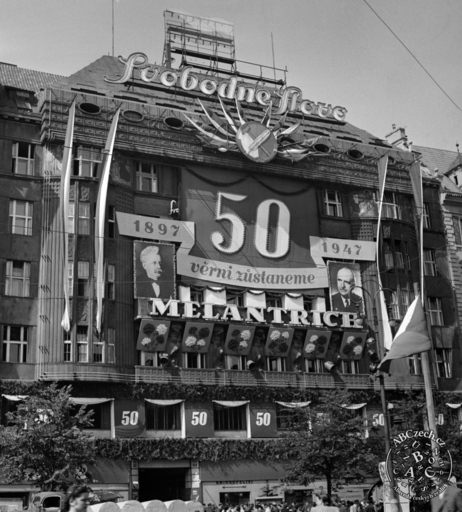
1898–1999
The Melantrich publishing company was originally called “Printing Press of National Socialist Workers” (Tiskárna národně-sociálního dělnictva), or “Book Printing Press of National Socialist Workers” (Knihtiskárna národně-sociálního dělnictva). It was founded on 9 July 1898, at the encouragement of Jaroslav Klofáč, president of the National Socialist Party. In March 1910, the company bought a house at Wenceslas Square no. 739, where it built a new building named The Star (Hvězda). At the same time, it also changed its name to “Melantrich, Book Printing Press and National Socialist Artistic Lithographic Institute” (Melantrich, knihtiskárna a umělecký litografický ústav národně-sociální). In 1917, the building was sold due to financial problems, but it was bought back in five years. In 1919, the company received the concession for selling books and opened a book shop in The Star.
The expansion of activities led to another change of the company’s name: “Melantrich, Public Limited Company for Graphic Industry and Publishing in Prague” (Melantrich, akciová společnost pro grafický průmysl a nakladatelství v Praze). The company kept growing and only the dailies and illustrated magazines remained on Wenceslas Square. Company branches opened in Ostrava in Moravia and in Brno, a later in Žilina in Slovakia as well. The company also invested into film, participating in Vladislav Vančura’s Faithless Marijka (Marijka nevěrnice, 1934) and introduced graphics design in Atelier Melantrich. It also introduced a music department and in the late 1930s bought the record company Esta. At the end of 1937, a mansard was opened in the building on Wenceslas Square for organising cultural events and the Ars exhibition hall on ground floor, which functioned until 1959. In 1938, Melantrich was one of the largest and most advanced printing companies in Europe. From February 1950, the company became an instrument of the Czechoslovak Socialist Party. In the 1950s, the phrase “Free Word” was added to the company’s name and in 1968 the company’s name reverted to its original form Melantrich. The publisher stopped its activities nine years after the Velvet Revolution.
At first, the company focused on periodicals and brochures. In 1920, it published the first Czechoslovak tabloid magazine Pražský ilustrovaný zpravodaj. Other popular magazines included Hvězda československých paní a dívek and Mladý hlasatel by Jaroslav Foglar.
The first book editions were published with magazines. The edition Románová knihovna Melantricha (1924–1928) was dedicated to translations. Women’s books were published in Ilustrovaná knihovna Hvězdy (1927– 1929). Melantrichova knižnice (1928–1934) was created under F. X. Šalda’s editorship and 81 volumes of translations and, to a lesser extent, original Czech literature were published in it. The Úroda edition (1928–1938, 101 volumes), edited by Bedřich Fučík, focused on contemporary world and Czech prose. Poetry was published in the Poezie edition (1933–1949, 63 volumes), at first edited by Bedřich Fučík and later by Antonín Matěj Píša. Other important editions brought translations from Russian, Polish, Slovak and other languages. Melantrich also published a lot of professional literature and reproductions of fine art.

Dramatist and theatre critic who considerably contributed to a change in the perception of theatre as an educational institution towards a concept recognising its artistic function and value.

Writer and dramatist, famous for the play Maryša, as well as the chronicle novel A Year in a Village (Rok na vsi).
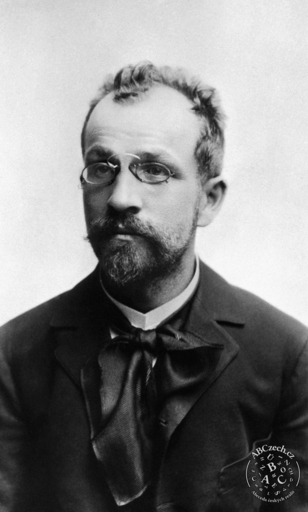
Writer, dramatist and literary critic. His work spans Realism, Impressionism, Art Nouveau and early Expressionism. He is also the author of Bestia triumphans (1897), a manifesto opposing the urban renewal scheme of the historic centre of Prague.

Writer and poet, who left trace in the history of Czech literature primarily as the author of Tales of the Little Quarter (Povídky malostranské, 1878) and several books of poetry. He became the leader of the generation which in the spring of 1858 in the almanac May (Máj) collectively declared adherence to the legacy of K. H. Mácha.
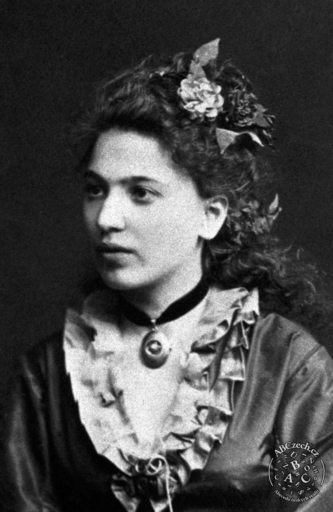
Prose author who wrote about life in eastern Bohemia. She is one of the prominent representatives of Czech realism and women’s emancipation movement.
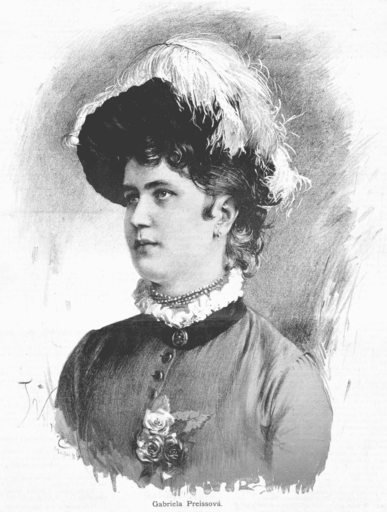
Dramatist, writer, dramaturg of the National Theatre. The operatic version by the composer Leoš Janáček of the original realist drama Její pastorkyňa brought her work worldwide fame.
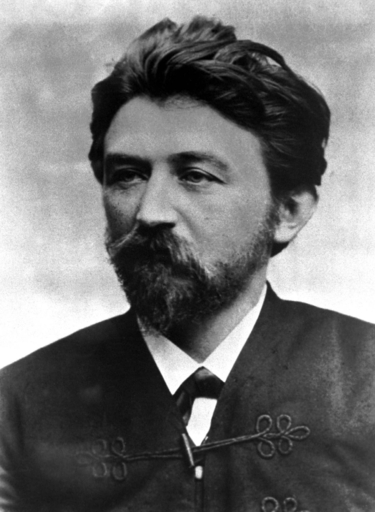
Prose writer and poet, one of the most famous representatives of Realism in Czech literature, author of the so-called country prose. He realistically depicted life in the Podkrkonoší region and the Bohemian-Moravian Highlands.

Poet, publicist and publisher of the magazine Lumír. He translated into Czech almost all the works by William Shakespeare. Themes from works of the Ruch and Lumír generation appear in his works. He is regarded as the founder of modern Czech poetry for children.

Dramatist, first dramaturg of the National Theatre in Prague, writer, advocate of theatre realism, one of the first Czech authors of social-critical dramas.

Writer, journalist and founder of the Czech village novel. She led the Czech women’s rights movement in its beginnings.
2016-2020 ABCzech.cz - © Filozofická fakulta Univerzity Karlovy
Content from this website may be used without permission only for personal and non-commercial purposes and with the source cited. Any other use is allowed only with the authors' consent.
This web application Sonic.cgi meets GDPR requirements. Current information can be found here.